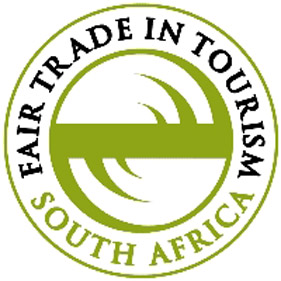FTTSA calls for climate justice in tourism

NGO alliance criticises the claim that climate regulation of aviation would make developing countries lose tourism income
In the run-up to the COP17 climate negotiations taking place in Durban an international alliance of civil society organisations has called upon negotiators to seriously and objectively address the role of tourism.
The alliance points out that it is irresponsible to exclude aviation on the grounds that tourism is an "engine of development" and argues that globally binding negotiations on aviation emissions will, if managed properly, enhance rather than undermine poverty reduction.
In a joint position paper, civil society organisations from the global North and South – including Fair Trade in Tourism South Africa (FTTSA), German Church Development Service (EED – Tourism Watch), Swiss Working Group Tourism and Development (akte), Ecumenical Coalition On Tourism (ECOT – Thailand), and Naturefriends International – express their concern regarding the position taken by tourism lobby groups in the international climate negotiations.
This NGO alliance criticises the often-cited claim brought forward by the travel and tourism industry that climate-related regulation of the aviation sector would make developing countries lose a considerable portion of their tourism income — a loss which would have negative impacts on poverty alleviation. According to this argument, binding emission reduction targets for the aviation sector would threaten the achievement of economic development goals.
For Christian Baumgartner, General Secretary of Naturefriends International, the claims that tourism automatically contributes to poverty alleviation in developing countries and that binding emission reduction targets for the sector would compromise poverty alleviation are unsupportable. "Only a fair and more sustainable tourism development can mitigate the negative impact of tourism on the climate and can actually contribute to poverty alleviation," Mr. Baumgartner emphasizes.
The organisations supporting the Call to Durban demand a serious and differentiated debate on tourism's contribution to poverty alleviation. "The travel and tourism industry has successfully protected its business interests in the name of poverty alleviation. However, it is urgent and imperative to address the complex social, cultural, economic and environmental impacts of tourism in destinations, especially the situation of employees and local communities," says Christine Plüss (akte).
Evidence from various case studies has shown that a large part of the income from tourism does not remain in developing countries, but leaks back to international investors.
More often than not, the remaining income fails to benefit the poor. Rather, local elites will profit from it.
"The poor in the so-called developing countries are the ones who suffer most from climate change — which they have not caused. And they hardly participate in or benefit from international tourism, even though this has often been claimed," says Caesar D'Mello (ECOT). "The tourism industry must change, it must become fairer. In South Africa, we have a range of policies and policy instruments and public-private partnerships that can help to inspire more equitable tourism development on a global scale," states Jennifer Seif (FTTSA).
"The debate on the role of tourism must go beyond repeating the same phrases over and over again, exclusively emphasizing the positive economic effects of tourism growth and failing to address the various negative impacts especially on the poor. It is high time to discuss the impacts of rapid tourism growth on the climate, biodiversity, natural resources and human development in a critical manner.
Economic growth is not an end in itself. What we need is a human rights based approach," demands Heinz Fuchs (EED).
On 5th December, 2011, during the climate negotiations in Durban, FTTSA, ECOT and EED Tourism Watch will be organising a panel discussion on climate justice and tourism. The panel will include a representative of the World Tourism Organization (UNWTO)
Title: Side event: Climate Justice and Tourism – sustainable tourism practices alleviate poverty more effectively than tourism growth numbers Time: 05/12/2011, 11h00 — 13h00 Venue: C17 – 'People`s Space', Room Shepstone 5, The University of KwaZulu-Natal (UKZN)
Valere Tjolle
Valere is editor of the Sustainable Tourism Report Suite 2011 Get your copy at a special offer price: HERE
 United Kingdom
United Kingdom United States
United States Asia Pacific
Asia Pacific












































Dozens fall ill in P&O Cruises ship outbreak
Turkish Airlines flight in emergency landing after pilot dies
Boy falls to death on cruise ship
Unexpected wave rocks cruise ship
Woman dies after going overboard in English Channel